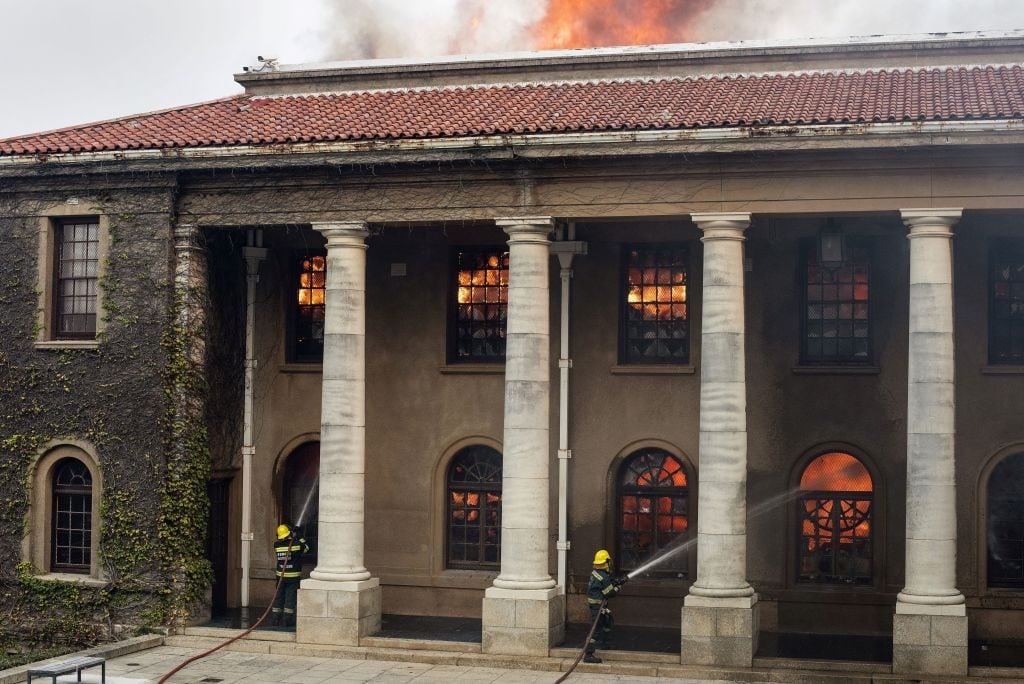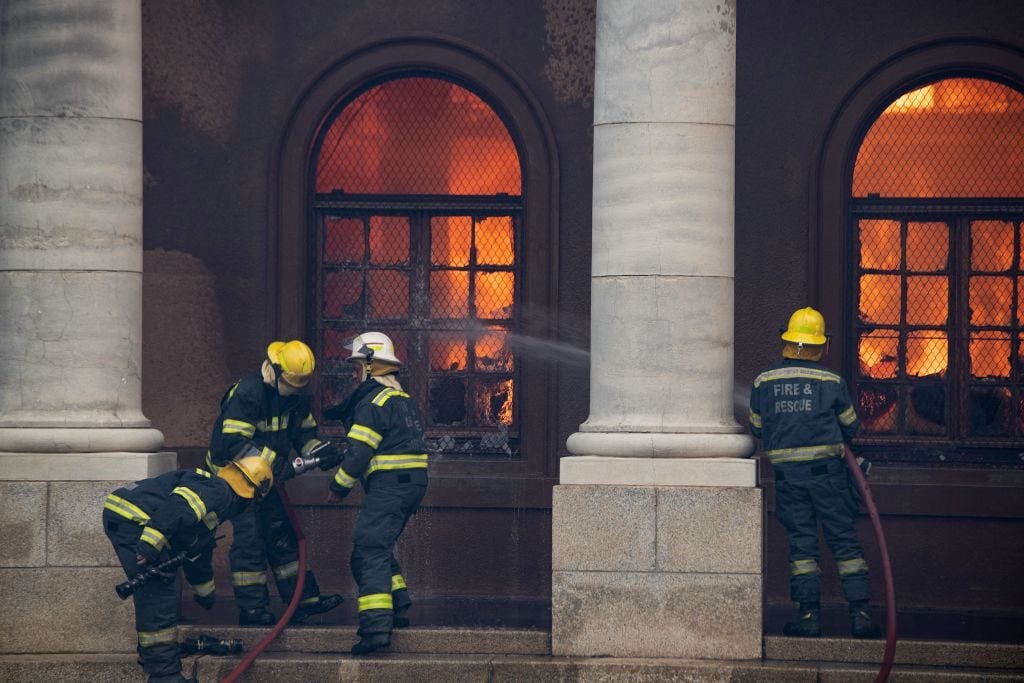Museums & Institutions
A Wildfire Has Gutted the University of Cape Town Library and Its Priceless African Studies Collection
The devastation raises important questions about improving remote access to scholarship.

The devastation raises important questions about improving remote access to scholarship.

Naomi Rea

A wildfire that began in the foothills of South Africa’s Table Mountain has gutted the University of Cape Town’s Jagger Library. Many are fearing the worst for its valuable African collections, which include important archival resources on anti-apartheid history and a large collection of African films.
The library’s executive director, Ujala Satgoor, told television station Newzroom Afrika that the Jagger’s reading room, which was the library’s original structure and subsequently became known as the African studies library, was “completely gutted.”
The library’s African collections contain more than 85,000 materials. Its massive African studies and films archive included a government publications collection from South Africa as well as other countries from the continent. Scholars came from all over the world to study the materials, which include information relating to anti-colonial and liberation movements, and some African countries’ transition to independence.
Satgoor has cautioned against speculation about what has been lost, stressing that the full scale of the damage cannot be assessed until they regain access to the building. The fire system activated the shutters and prevented the blaze from spreading to other parts of the library, but she added that there are immediate concerns about further damage due to water seeping into the floors below the reading room.
The library has, however, been slowly purchasing duplicate copies of some of its materials over the past decade, as well as developing e-resources to provide access to its collections. “We do have the basis of rebuilding this African studies collection,” Satgoor said, “but the magic or beauty of working with a tangible hard copy for many researchers is invaluable.”

Firefighters try to extinguish a fire in the Jagger Library, at the University of Cape Town. Photo by Rodger Bosch/AFP via Getty Images.
As the library looks to rebuild the collection, Satgoor says any materials that can be salvaged will be digitized to preserve them for posterity, and that in the future they will be considering alternative formats in which to acquire materials. She also sees the tragedy as an opportunity for the library to expand its coverage of new politics emerging across the continent, and to build out its human rights collections. “It forces us also to decolonize a very colonial collection or links to coloniality so in all of this sadness and horror there is the opportunity of the genesis of something new to look forward to,” she said.
Officials suspect the blaze was caused unintentionally by a neglected fire set by someone spending the night on Devil’s Peak. It spread rapidly before sweeping onto the campus, and forcing officials to evacuate some 4,000 students.
Historian and political analyst Somadoda Fikeni told the outlet that the loss is “beyond any imagination.”
“I can simply say that an African continent which has suffered several series of conquests has been struggling to reconstruct its own history, and particularly that which is documented,” Fikeni said. “Therefore any special collection which is frail, which is no longer available, which is not reprinted very often, tends to be priceless in terms of its heritage value, in terms of the knowledge project.”
There are lessons to be learned from the devastation about building out access to special collections so that they are more widely available, Fikeni said. “For as long as these materials tend to be jailed in a basement with signs that say ‘do not touch,’ they are vulnerable to water, and fire, as well as ignorance.”